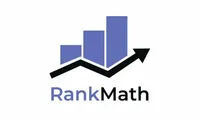How web hosting affects your SEO
Here’s how the right web hosting service can help grow your business

Sign up for breaking news, reviews, opinion, top tech deals, and more.
You are now subscribed
Your newsletter sign-up was successful
If you want to grow your online presence, expand your business, and give yourself the best chance of success, it’s vital to understand the relationship between web hosting and your site’s SEO performance.
There are many factors that can affect how your web hosting can impact your SEO, so it’s worth taking some time to understand everything that’s going on.
In this article, we’ll explore how web hosting can affect SEO and offer some tips on how to ensure that your hosting is not negatively impacting your SEO.
Rank Math is a great choice as an SEO plugin
Rank Math is here to help you take your website to the next level. A powerful SEO plugin, Rank Math can help with website optimization, use AI to analyze your website's content, notify about rank trackings, and send you daily updates on SEO performance.
How does web hosting affect your website’s SEO?
Many factors affect website SEO – and web hosting is one of the most important. Your website’s speed, uptime, and security all impact SEO performance, so choosing a good web host is an integral part of ensuring your website is optimized for SEO and search.
Here are some ways that web hosting can affect website SEO:
- Website speed: One of the most important ranking factors for SEO is website speed. Web hosting can affect your site’s speed in several ways, and slow servers from your web host mean a slow experience for visitors – which can harm your search ranking.
- Uptime: A slow-loading or unreliable website can lead to a higher bounce rate and hamper your search performance. And if your website is frequently down due to server problems, your SEO can suffer again.
- Rankings: if you want to perform well in search rankings and ensure good SEO, then consistent uptime will ensure reliability and better results for your site.
- Security: Website security is crucial for SEO. If your website is hacked or compromised, this can lead to a drop in your rankings. A good web host will offer features like malware scanning and DDoS protection to help keep your website safe.
- Location: The location of your server can affect your website's SEO. If you want to target a specific country or region, choosing a web host with servers in that area is best. This way, your website will load faster for visitors in that area, and your site will be more likely to appear in search results for those regions.
Website SEO strategy
SEO can form part of a long-term marketing strategy that helps you improve your visibility and organic traffic from search engines – and, therefore, improving business sales and success.
It involves optimizing your website’s content and performance to rank higher in search engine results pages (SERPs) for specific queries related to your business.
Sign up to the TechRadar Pro newsletter to get all the top news, opinion, features and guidance your business needs to succeed!
To build an SEO strategy for your business, you must understand how search engines work and what factors they use to rank websites. You also need to be familiar with the latest trends and best practices in SEO.
Here are some tips to help you create an effective SEO strategy:
Understand how search engines work
The first step to creating an effective SEO strategy is understanding how search engines work. A search engine is a program that searches the internet for websites based on certain keywords or phrases that users enter into the search bar.
The search results are displayed in a SERP, which stands for search engine results page. The websites that appear on the first page of the SERP are typically the most relevant and authoritative websites for a particular query – and usually, the ones that the vast majority of users click.
If you can get your website onto the first page of results, you’ll have a better chance of success.
Search engines use complex algorithms to determine which websites should appear on the first page of the SERP. These algorithms consider various factors, including the quality and relevance of the website’s content, the security and speed of the website, and the number of other websites that link to it.
Do your keyword research

It’s important to conduct keyword research to ensure that your website appears in results for relevant queries. This involves finding out what keywords or phrases people use to search for businesses like yours.
You can use many tools to do keyword research, such as Google AdWords Keyword Planner, Semrush, and Moz Keyword Explorer. Once you’ve identified relevant keywords, you can include them in your website’s content, titles, and meta tags.
Optimize your website’s content
One of the most important factors that search engines use to rank websites is the quality of the content. This means you must ensure your website’s content is well-written, informative, up-to-date, and relevant to your business.
In addition to writing high-quality content, you also need to optimize it for search engines. This can be done by including relevant keywords throughout your content and using keyword-rich titles and meta tags, so spending time using those keyword research tools is important.
Promote your website on social media

Social media engagement is another important factor that search engines consider when ranking websites. This means that if your website is active on social media platforms like Twitter, LinkedIn, Instagram and Facebook, it is more likely to rank higher in results.
How your website’s uptime affects SEO
Uptime is essential for two reasons when it comes to SEO. Firstly, if your website is down, people can’t access your content – so search engines will punish your site for its unavailability, and potential customers won’t be able to find your products or services.
Secondly, Google and other search engines can’t index your site if it’s down – which means they can’t evaluate the site for potential inclusion in search results. That, naturally, can negatively affect your ranking, traffic, and success.
There are a few things you can do to help ensure that your website stays up and running:
- Use a reliable web hosting service: A good web host will keep your website up and running most of the time. Find a web host with a good reputation for uptime and provisions for maintaining uptime should they experience any technical issues.
- Monitor your website regularly: Use a service like Pingdom or Uptime Robot to monitor your website's uptime. You'll be alerted if your website goes down, and you can take action to get it back up and running as quickly as possible.
- Use a caching plugin: A caching plugin will speed up your website and reduce the strain on your server. This can help to prevent your website from going down due to high traffic levels. They’re particularly popular for websites based on WordPress.
- Optimize your website for performance: Make sure that your website is optimized for performance. This includes using a fast WordPress theme and optimizing your images. You can also investigate performance improvements like reducing HTTP requests and redirects, deleting unnecessary plugins, optimizing your code and removing unnecessary JavaScript.
- Keep your WordPress version up to date: Always keep your WordPress version up to date. Outdated versions of WordPress are more susceptible to security vulnerabilities, which could lead to your website being hacked. This is also relevant if you use other web hosting products – keep them up to date, and you’ll have a more secure and better-performing site.
Make use of available SEO tools
Many different SEO tools are available on the market, each offering its own features and benefits. However, not all SEO tools are created equal, and choosing the right tool for your specific needs is essential.
Here are a few things to keep in mind when choosing an SEO tool:
- Ease of Use: This is often forgotten when evaluating features and pricing, but ensuring that your SEO tool is easy to use is vital. When you’re trying to delve into a complex tool that can improve your chance of business success, the last thing you need is an unnecessarily complex UI or a tool slowing you down because it’s challenging to use.
- Functionality: Another critical factor to consider is functionality. Make sure the SEO tool you choose offers the features and options you need to get the job done – and consider if its features will be helpful to you in the future, too, as you develop your site.
- Cost: SEO tools can range in price from free to hundreds of dollars per month. Finding a tool that fits your budget and offers the features you need is important. Also, consider the best ways to pay for your tool: some offer discounts or better value if you sign up for a longer deal, others have frequent discounts and sales, and others can be negotiated on a case-by-case basis.
- Support: If you run into any problems while using an SEO tool, it's important to have access to quality support. Otherwise, you may be frustrated and unable to get the most out of the tool. Research what support options are available with different products and pricing tiers: some products only offer support tickets and customer forums, while others provide more responsive live chat and phone support options. If you’re experiencing issues, access to that kind of fast support can prove crucial.
- Updates: SEO rules frequently change – indeed, whole sites are dedicated to SEO news, and hundreds of articles are written whenever Google tweaks its SEO algorithms. This means it’s vital to stay on top of the latest trends to ensure that your business keeps performing well in the face of algorithmic changes – and it also means that you need to make sure that your SEO tool keeps pace, too, with frequent updates to reflect the latest best practice.
Why is hosting important for SEO?
Hosting is important for SEO because it can affect your website's load speed, which is a ranking factor for search engines. A faster website means better search engine rankings and happier visitors – which, in turn, can mean better business performance.
Also, hosting can impact your website's security, which is important for search engines and visitors. A secure website is more likely to rank higher in search results and is less likely to be visited by malicious bots or hackers.
Finally, good web hosting can improve your website's uptime. That’s vital – if your website is down, search engines can’t index it to evaluate your SEO improvements, and visitors can’t access it to see your products or services. A good host ensures near-flawless uptime, so you’ll unlikely lose out on traffic or a good ranking.
Get SEO right
Your business web hosting can have a crucial impact on SEO, so it’s vital to get it right. A good host will improve your website’s speed, uptime, and security while providing proactive, up-to-date ways to improve your SEO – all of which will improve your rankings and your chance of business success.
And if you can find a host based in the same region as you, that will impact performance and SEO, too.
Many people think that optimizing a website for SEO just involves getting the content right or tweaking things like image sizes or plugins, but optimizing for SEO starts with the web host.
Choosing a good web host is integral to optimizing your website for search engines. Make sure to consider all the factors that can affect your SEO when selecting a web host for your website.
TechRadar created this content as part of a paid partnership with Rank Math. The contents of this article are entirely independent and solely reflect the editorial opinion of TechRadar.
Mike has worked as a technology journalist for more than a decade and has written for most of the UK’s big technology titles alongside numerous global outlets. He loves PCs, laptops and any new hardware, and covers everything from the latest business trends to high-end gaming gear.
